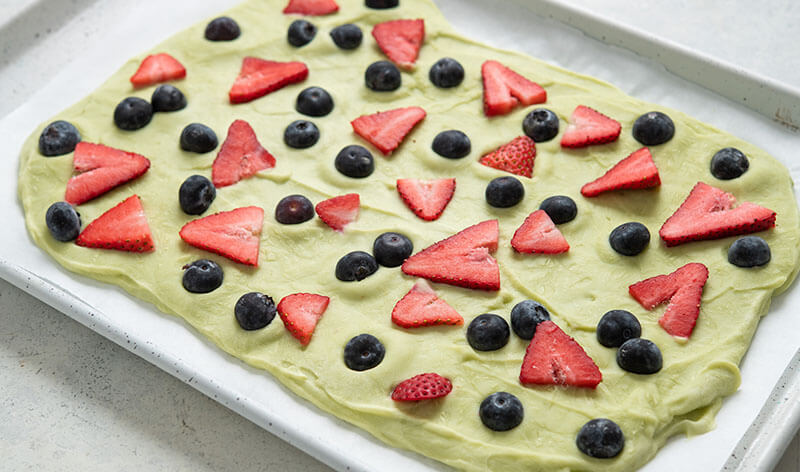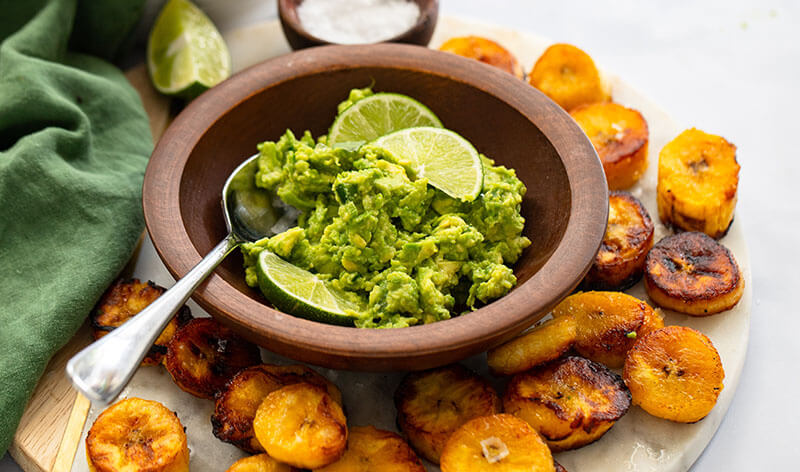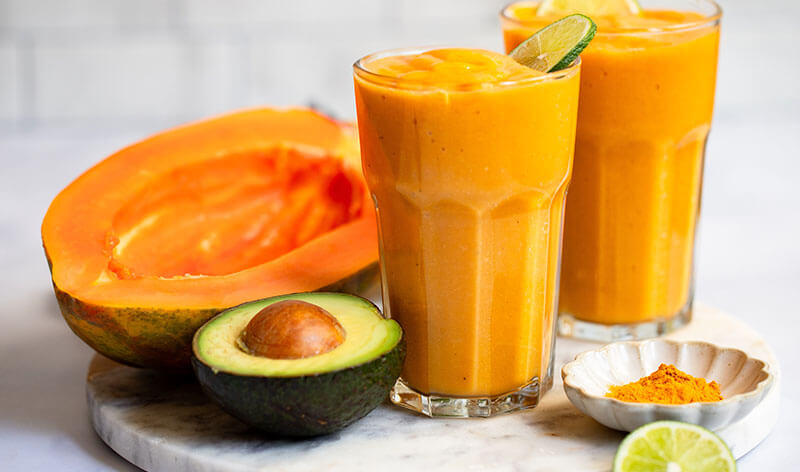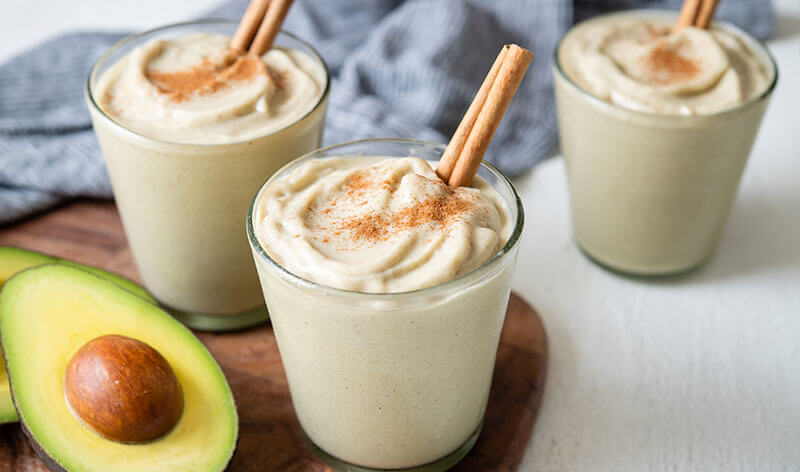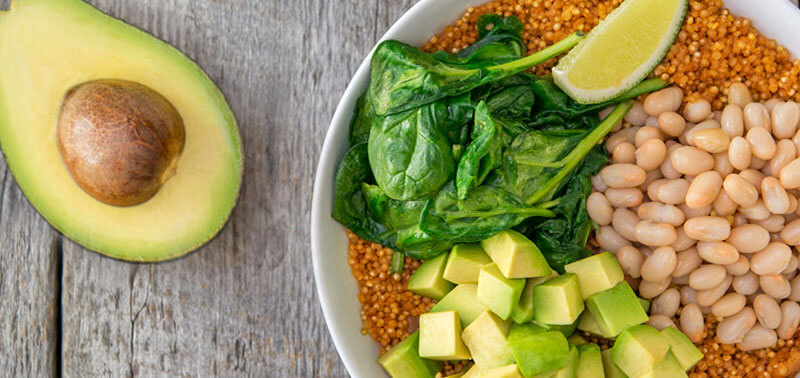Fiber plays a crucial role in gut health by feeding beneficial gut bacteria, promoting a balanced microbiome, and aiding digestion. Avocados, a nutrient-dense source of fiber, provide both soluble and insoluble fiber, which supports digestion, stool regularity, and microbiome diversity.
How Fiber Benefits the Gut:
- Supports Microbiome Balance: Prebiotic fiber in avocados fuels beneficial bacteria, enhancing gut health.
- Promotes Digestion: Insoluble fiber helps move food through the digestive tract, while soluble fiber slows digestion to support nutrient absorption.
- Produces SCFAs: Fermentable fiber is broken down into short-chain fatty acids (SCFAs), which contribute to gut lining integrity and reduce inflammation.

How Much Fiber is in an Avocado?
A 50 g serving of avocado contains 3 g of fiber, with 65% being insoluble, supporting regularity.

To improve gut health, incorporate foods that are a good source of fiber, like avocados, legumes, and whole grains.
Fiber and Gut Health: How Avocados Support a Healthy Digestive System
While the primary responsibility of your digestive system is to break down food, your gut does more than just that. It plays a role in everything from ensuring your body absorbs nutrients to maintaining your overall well-being. At the center of it all is the gut microbiome, the mini-ecosystem inside your body made up of billions of bacteria and other microbes that help keep digestion running smoothly. What you eat can directly affect this system, and fiber is one of the best ways to keep it balanced.
Avocados are often praised for their delicious taste and healthy fats, but they’re also a good source of dietary fiber, making them a valuable addition to a gut-friendly diet. Whether you’re looking to support digestion or simply add more fiber to your meals, understanding the role of gut health and fiber can help you make informed choices.


Why Gut Health Matters
Your gut is home to a diverse mix of bacteria, collectively known as the gut microbiome. While bacteria might not sound like a good thing, many of these microbes play a role in breaking down food, extracting nutrients, and supporting digestion. A balanced microbiome may contribute to overall digestive function, while an unbalanced one could be associated with digestive discomfort or irregularity.
The food you eat can also affect the composition of your gut bacteria. Foods containing fiber, such as avocados, legumes, and whole grains, provide fuel for certain beneficial bacteria, which may help maintain a diverse and well-functioning microbiome. On the other hand, diets low in fiber and high in processed foods might not support gut bacteria in the same way.
Gut health has been studied for its potential links to other aspects of wellness , and consuming fiber-rich foods may be one way to support digestion. Whole foods, like fruits and vegetables, and avocados could help promote a balanced gut environment.

What is Fiber?
Fiber is a type of carbohydrate you can find in plant-based foods. While fiber doesn’t provide energy like other carbs, its role is to support digestion and keep things moving smoothly. There are two main types of fiber — soluble and insoluble—and both contribute to gut health in different ways.
Soluble fiber dissolves in water, and turns into a gel in the digestive tract, slowing digestion and aiding in nutrient absorption. You can find soluble fiber in foods like oats, beans, and fruits, including avocados.
Insoluble fiber, on the other hand, doesn’t dissolve in water. Instead, it bulks up the stool, which helps pass food through the digestive system faster. You can find this type of fiber in whole grains, nuts, seeds, and many vegetables. Since avocados contain both 35% soluble and 65% insoluble fiber (1.05 g of soluble fiber and 2.95 g of insoluble fiber), they support digestion in multiple ways.
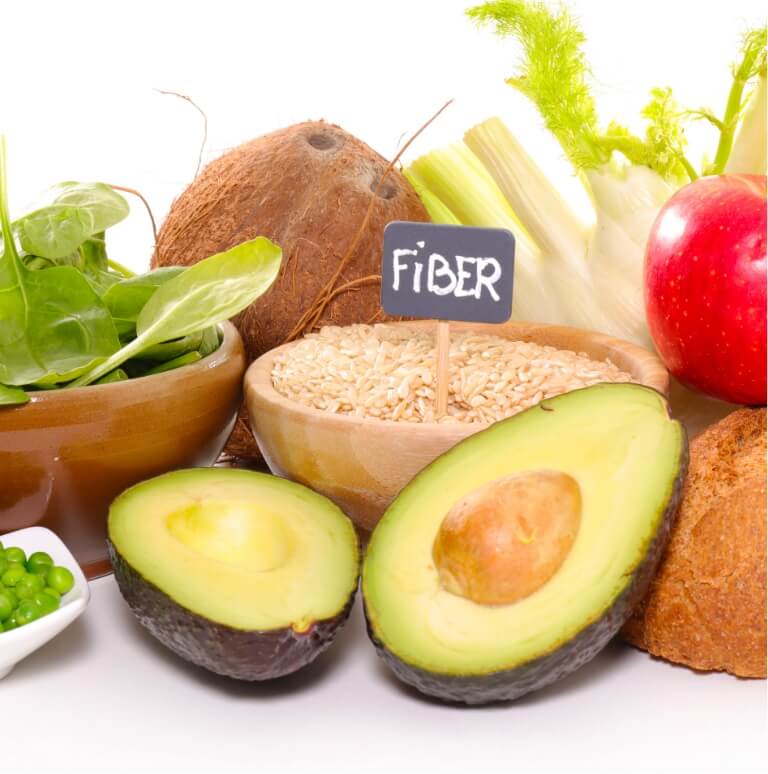
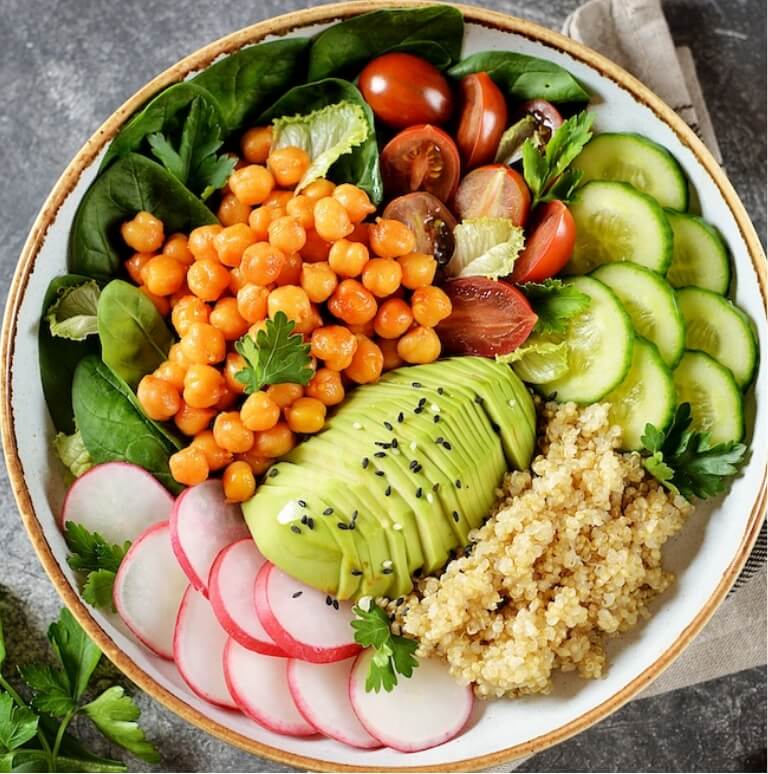
How Fiber Helps Your Gut
Consuming foods rich in fiber may reduce the risk of heart disease, obesity, and type 2 diabetes. Fiber may protect the lining of the colon by increasing the bulk and weight of stool and speeding elimination from the body.
Beyond aiding digestion, fiber also supports the gut microbiome. Certain fibers act as prebiotics, meaning they feed beneficial gut bacteria. When gut microbes break down fiber, they produce short-chain fatty acids (SCFAs) , which may contribute to digestive balance. Since good sources of fiber like avocados naturally contain prebiotic compounds, they can help maintain a thriving gut environment.
For those looking to improve fiber intake, a varied diet that includes fruits, vegetables, whole grains, and legumes is key. Many people fall short of the recommended daily fiber intake, and increasing consumption of good sources of fiberlike avocados can be a simple way to add both variety and digestive support to meals.

Fiber Supplements vs. Dietary Fiber
When looking to increase your fiber intake, you may be tempted to turn to fiber supplements. While fiber supplements can fill in the gaps of your nutrition, they are no substitute for a well-balanced diet. The fiber found in supplements should be used to complement your diet, not as a substitute.
Excessive fiber intake from supplements can even cause digestive discomfort. Consuming high amounts of fiber supplements —especially without enough water, may lead to bloating, cramping, and constipation.
When it comes to fiber intake, whole foods offer benefits that fiber supplements can’t replicate. Natural fiber from whole foods provides a mix of fiber types and plant compounds that may contribute to gut health. Certain types of dietary fiber from fruits and vegetables can act as prebiotics, providing food for beneficial gut bacteria. Fruit fiber, such as pectin, has been shown to promote a healthy gut.
Just one-third of an avocado contains 1.2 g of pectin. Fiber from whole foods can support your gut in a better, more natural way.

How to Support Gut Health Naturally
Taking care of your gut starts with everyday choices, especially when it comes to diet. Incorporating foods that contain fiber is one way to support digestion and gut function. Avocados, beans, whole grains, nuts, and vegetables provide both soluble and insoluble fiber. Eating foods that include both types of bacteria can help promote regular digestion and may support certain beneficial gut bacteria.
Hydration also plays a key role in gut health, particularly when increasing fiber intake. Fiber absorbs water, which helps soften stool and support regularity. Without sufficient fluid intake, fiber may contribute to digestive discomfort. Drinking adequate water throughout the day allows your body to reap the benefits of fiber without getting blocked up.
A varied diet that includes both prebiotics and probiotics may contribute to gut microbiome diversity. Prebiotics — found in foods such as avocados, bananas, and onions — fuel certain beneficial gut bacteria. Probiotics, found in fermented foods such as yogurt, kimchi, and sauerkraut, provide live microorganisms that may influence gut microbiome composition. Including a variety of these foods can be part of a balanced approach to digestive health, though individual responses vary.
Your diet can affect the makeup of your gut microbiota, the community of microorganisms that live within the microbiome. In a weight-loss study of 51 overweight or obese adults, researchers found that the gut microbiota responded differently to an avocado-inclusive compared to a control diet. Participants were advised to eat 500 calories less each day and to eat one avocado daily, compared to a control group following the same dietary guidance without avocado. Though more research like this study funded by the Avocado Nutrition Center is needed to confirm the findings, especially in a larger U.S. representative sample, the results suggest the fiber contained in avocados can be part of a balanced diet that supports a healthy gut.
How Much Fiber is in an Avocado?
Avocados are more than just a delicious addition to meals — they’re also a good source of fiber, making them a valuable choice for gut health. Since fiber plays a key role in digestion and microbiome balance, including avocados in your diet can help support a well-functioning gut.
A 50 g serving contains 3 g of fiber, making avocados an easy way to add fiber to meals without sacrificing flavor or texture. Unlike many other fruits, avocados provide both soluble and insoluble fiber, which work together to support digestion and gut health. 65% of the fiber in an avocado is insoluble.
In a trial of 163 overweight adults, researchers reported changes to gut bacteria and metabolite levels when participants ate one avocado a day for 12 weeks compared to a diet that excluded avocado. The Avocado Nutrition Center supported the study, and although the findings from one study cannot be generalized to larger populations, this finding supports a growing body of science that suggests avocados play a role in managing the digestive tract’s microbiome.


Avocados and Prebiotic Fiber
Avocados contain 3g of prebiotic fiber per 50g serving, which serves as fuel for beneficial gut bacteria. Prebiotics are a type of fiber that the body cannot digest, but gut bacteria ferment them, producing SCFAs like butyrate, acetate, and propionate. By providing prebiotic fiber, avocados may contribute to a more diverse and balanced gut microbiome, which plays a key role in digestion and overall gut function.
In addition to their fiber content, avocados offer healthy monounsaturated fats. These fats can support gut health by aiding nutrient absorption and helping to regulate inflammation in the digestive tract. This combination of fiber and healthy fats makes avocados a uniquely gut-friendly food.
A study evaluated the impact of daily avocado consumption for 6 months on gut microbiota in 230 adults with abdominal obesity. The avocado group showed higher gut microbiota diversity and significant increases in Faecalibacterium prausnitzii and Bacterium AF16_15 compared to controls. The Avocado Nutrition Center supported this study. Improvements were more pronounced in participants with lower baseline diet quality, highlighting avocados’ potential prebiotic benefits.












